Ever wondered why maintaining good dental and oral health is so crucial? Dive into our comprehensive guide that unravels the intricacies of oral health, exploring common issues and their solutions, beneficial daily practices, and innovative technological advances.
Understanding Dental & Oral Health: Why It Matters
Your oral health is a window to your overall health. Maintaining robust dental hygiene helps prevent a plethora of health issues. Neglecting it is not just about dealing with cavities; it could lead to more serious systemic problems.

The Importance of Good Dental Hygiene
Good dental hygiene is essential not only for a bright smile but also for overall wellness. Regular brushing and flossing can significantly reduce the risk of dental issues such as cavities and gum diseases, ensuring long-lasting oral health.
How Poor Oral Health Affects Overall Health
Poor dental care can lead to severe health conditions including cardiovascular diseases and diabetes. Infections that begin in the mouth can spread to other parts of the body, exacerbating existing conditions and creating new health concerns.
Common Dental & Oral Health Issues and Their Solutions
Cavities and Tooth Decay: Prevention and Treatment
Tooth decay typically happens due to the buildup of plaque on the teeth. The best prevention methods include routine brushing with fluoride toothpaste, regular dental check-ups, and a balanced diet.
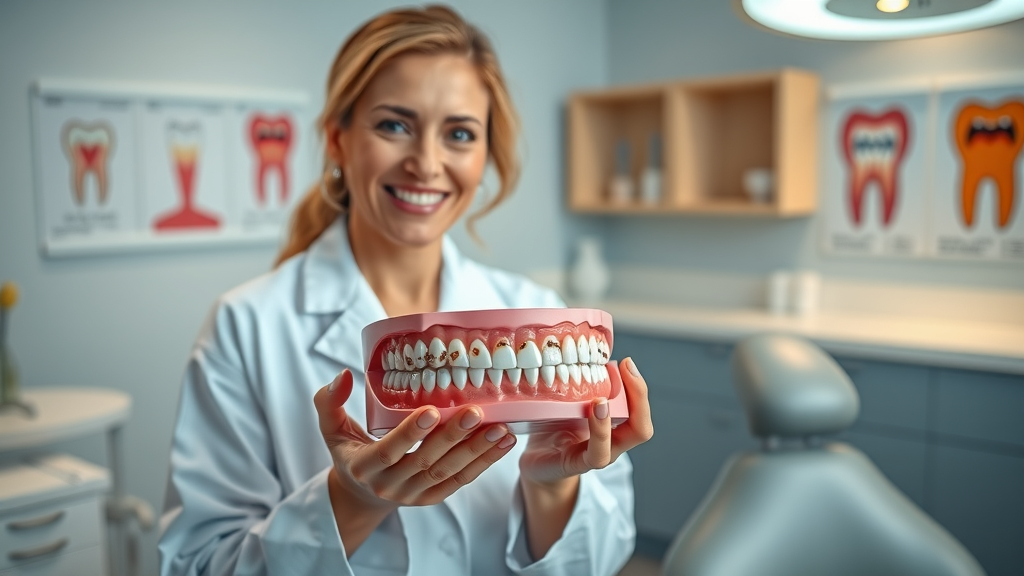
Gum Disease: Recognizing and Managing Symptoms
Gum disease, or periodontal disease, is often painless but manifests in symptoms like swollen gums and bleeding. It can be managed by better oral hygiene practices, professional cleanings, and sometimes medication prescribed by dentists.
Bad Breath: Causes and Remedies
Bad breath, or halitosis, can be caused by poor oral hygiene or dental issues. Remedies include regular tongue cleaning, improved dental care, reducing tobacco use, and staying hydrated.
Daily Dental Care: Tips for a Healthy Mouth
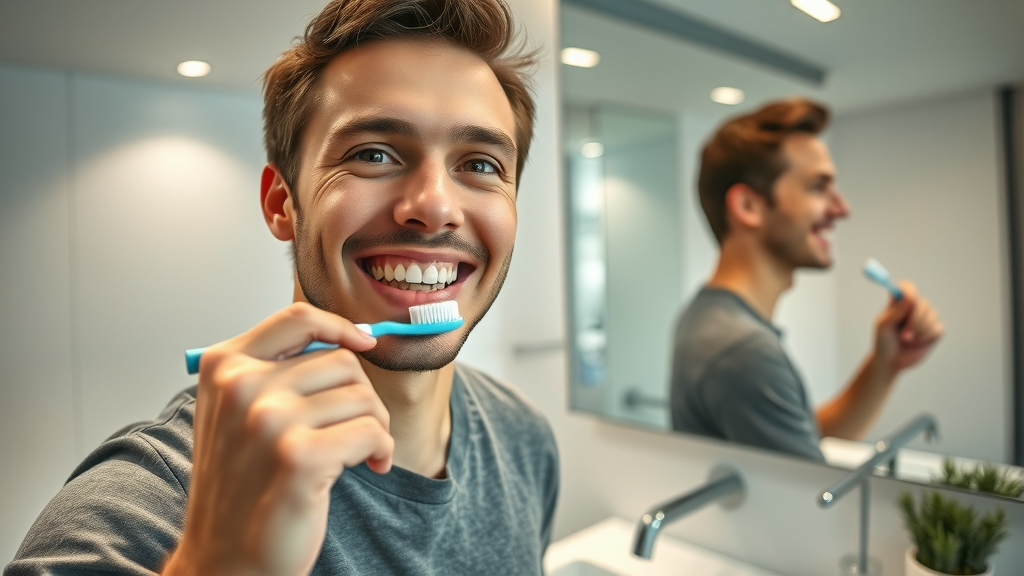
Brushing Techniques: Maximizing Effectiveness
Proper brushing technique involves using a soft-bristled toothbrush to clean your teeth for at least two minutes, twice daily. It’s crucial to reach all tooth surfaces to prevent plaque accumulation.
The Role of Flossing in Oral Health
Flossing removes debris and plaque that a toothbrush can’t reach, especially between teeth where cavities commonly form. Daily flossing is vital for maintaining gum health and preventing periodontal disease.
Mouthwash: Benefits and Proper Usage
Mouthwash serves as an effective adjunct to brushing and flossing, aiding in plaque reduction and offering additional protection against oral health diseases, while also freshening your breath.
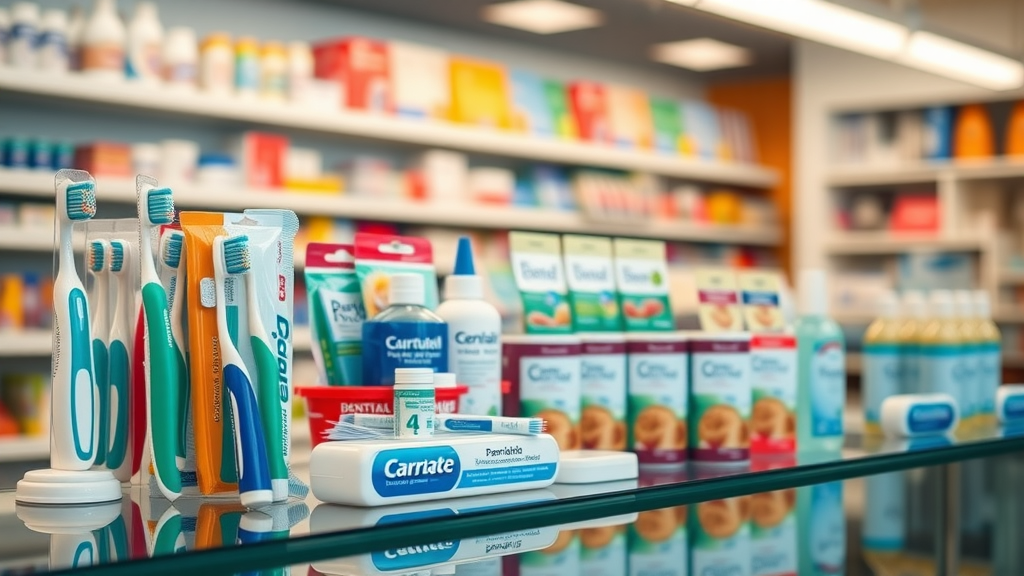
Diet and Dental Health: What to Eat and Avoid
A balanced diet rich in fruits, vegetables, whole grains, and calcium can help keep your teeth strong. Avoid sugary snacks and acidic drinks, which can erode tooth enamel and contribute to decay.
Professional Dental Care: What to Expect
Regular Dental Check-Ups: Importance and Frequency
Regular check-ups, recommended at least twice a year, allow your dentist to diagnose potential issues early and ensure your oral hygiene practices are effective.
Dental Procedures: From Routine Cleanings to Surgery
Aside from cleanings, you may encounter other procedures such as fillings, extractions, or even complex surgeries, all aimed to restore and maintain your oral health.
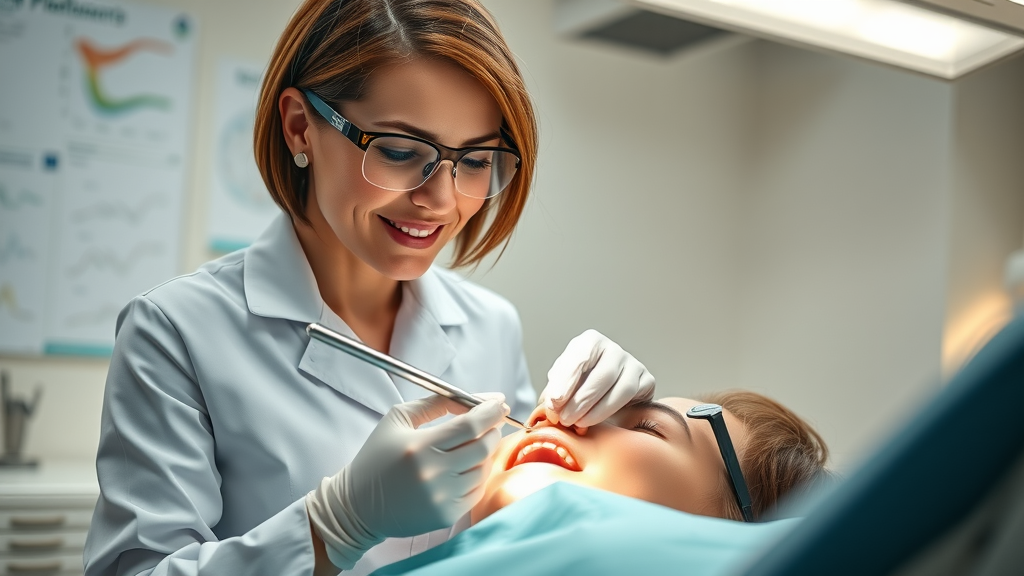
Advanced Technologies in Dental Care
Digital Dentistry: The Future of Oral Health
The advent of digital dentistry technologies like 3D imaging and CAD/CAM has transformed diagnostic accuracy and treatment planning, making dental care more efficient and less invasive.
Innovations in Orthodontics
Modern orthodontic solutions like invisible aligners offer a comfortable and aesthetic alternative to traditional braces, making corrective dental treatments more appealing to adults.
Laser Dentistry: Advantages and Uses
Lasers in dentistry allow for precision in procedures, reduced pain, and shorter recovery times, offering an advantageous alternative to traditional methods for various treatments.
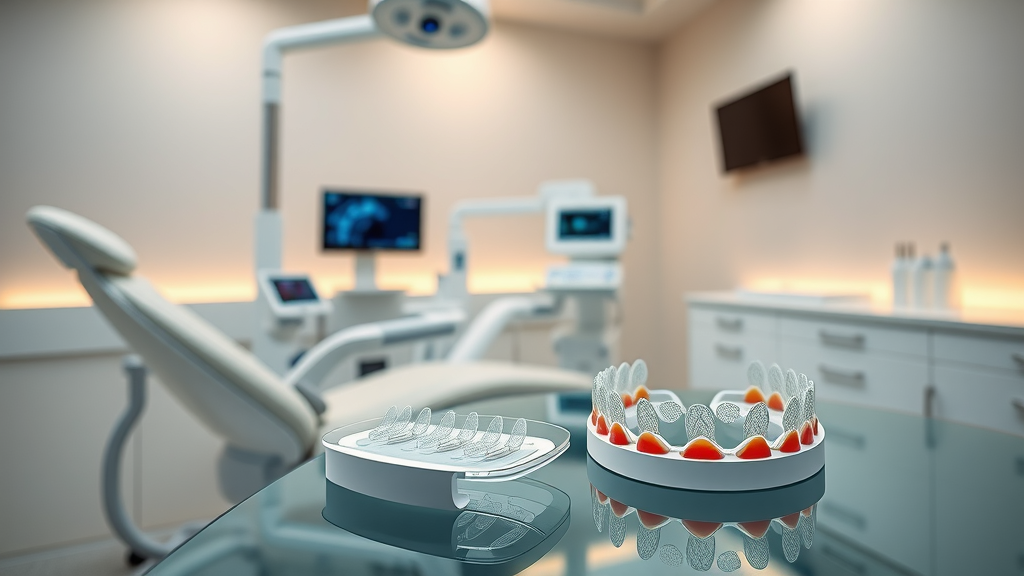
Dental Products: Choosing the Right Tools for You
Toothbrush Types: Manual vs Electric
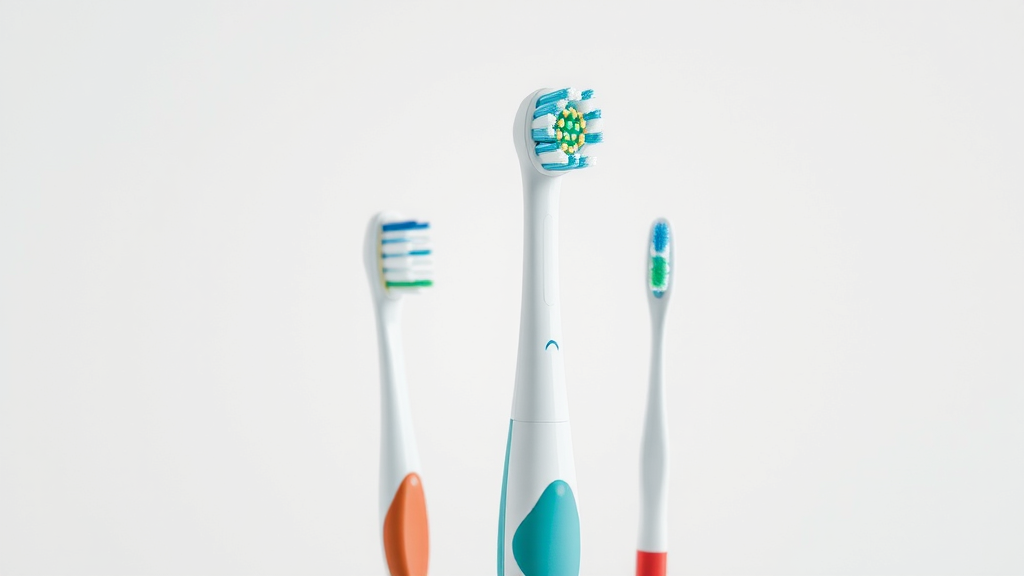
Electric toothbrushes often offer superior cleaning due to their vibrating or oscillating heads, but a manual toothbrush can be just as effective if used properly with the right technique.
Choosing the Right Toothpaste
Different toothpastes cater to various needs including whitening, sensitivity relief, and plaque prevention. Selecting the right one depends on personal oral health requirements.
The Best Mouthwashes for Your Needs
Mouthwashes range from antibacterial to fluoride rinses, each serving unique purposes. Consult with your dentist to determine the best option for your oral health.
What You’ll Learn
- Importance of oral health and hygiene
- Common dental issues and their prevention
- Proper dental care techniques
- Latest innovations in dental health
FAQ Section
- What is the best dog food for a sensitive stomach?
- How long does it take a dog’s stomach to adjust to new food?
- Which is better for a dog with a sensitive stomach?
- What is the best dog food to harden stools?
Key Takeaways
- Understanding the link between oral and overall health
- Maintaining a good oral care routine
- Keeping up with the latest dental treatments and technologies
Conclusion: Prioritize Your Oral Health for a Better Life
Maintaining good oral health is not just about having a bright smile; it’s an integral part of overall well-being. Make dental care a priority for lifelong health.
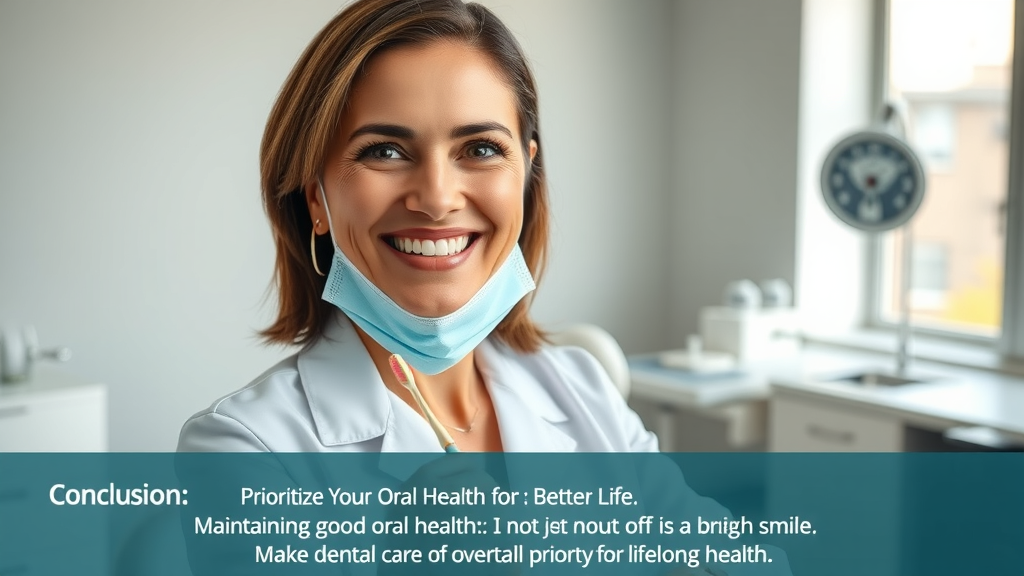
Tables: Comparative Analysis of Dental Products
| Product | Features | Benefits |
|---|---|---|
| Manual Toothbrush | Basic functionality | Cost-effective, easy to use |
| Electric Toothbrush | Vibrating head technology | Enhanced cleaning, ease for braces |
| Antibacterial Mouthwash | Targets bacteria | Reduces plaque and gingivitis |
Quotes from Dental Experts
“Oral health is a critical part of overall health; neglect it at your own risk.” – Dr. Jane Doe
“Innovations in dental care are changing the face of oral hygiene, making it more efficient and effective.” – Dr. John Smith
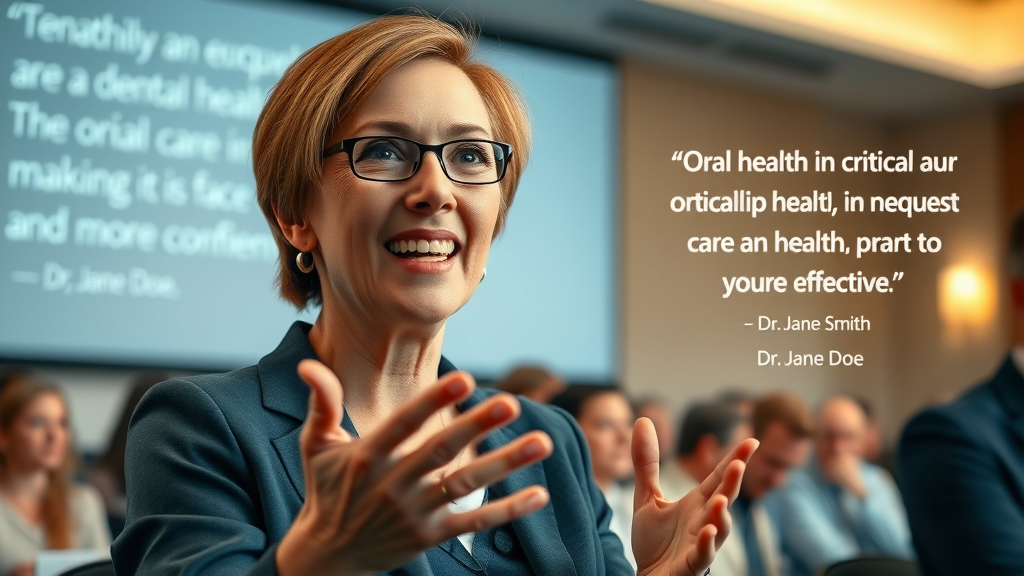
Lists: Quick Tips for Better Dental Hygiene
- Brush twice daily with fluoride toothpaste
- Floss daily
- Limit sugary snacks and drinks
- Visit your dentist regularly

Leave a Reply